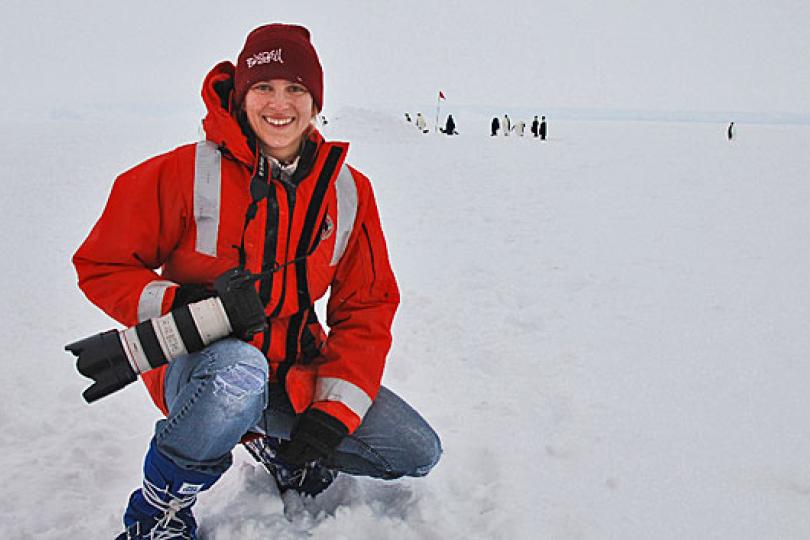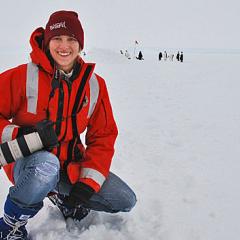Scientist who ‘always undercut’ herself now wins high praise, awards
Editor's note:The following is an excerpt from the Colorado Arts and Sciences Magazine story. See the original article here.
Growing up in Goffstown, New Hampshire, University of Colorado Boulder Assistant Professor of Environmental Studies Cassandra Brooks was a case study in ambition butting up against opportunity. She wanted to do big things, but she wasn’t sure what, or how, or even if she could.
“I always undercut myself,” she says.
It didn’t help that, when she attended college to study biology, she didn’t feel prepared. “I really had a hard time in college,” she says. “I didn’t have the study skills.”
What she did have, however, was a deep and abiding respect for nature and a keen interest in doing right by it. “I grew up near the woods and water,” she says. “I always felt very connected to the world around me. I always felt an obligation to do more good than harm on a daily basis.”
Eager to remain in the green on nature’s balance sheet, Brooks had a life-changing realization after college while working on fishing vessels as a fisheries observer.
“I was out on the fishing boats with these fishermen and I understood the social, human dimension of fisheries, and the deep problems with fisheries, and the history of the current moment,” she says. “That drove me to go back to school for marine science and focus on deep-sea fish.”
Since then, Brooks has earned a master’s degree in marine science, a graduate certificate in science communication and a PhD in environment and resources. She was a core member of the Last Ocean Project, a global outreach effort to safeguard the Ross Sea, which became the largest marine protected area in the world in 2016, an event Brooks witnessed first-hand. She’s spoken at conferences around the globe and dined with Chilean president Sebastián Piñera. Recently, she won an NSF CAREER grant to study Antarctic toothfish, whose ear bones offer clues to the health of the Southern Ocean.
And that is only a sampling of her accomplishments.
On many occasions, Brooks says, she was told that working in conservation wouldn’t pay, that she would struggle to earn a living, that she wouldn’t be rewarded for it.
Now she’s being rewarded for it.
Two organizations are honoring Brooks for her scientific contributions: the Explorers Club (EC) and the Society of Women Geographers.
Brooks was named one of the EC’s “fifty people changing the world who the world needs to know about,” and Society of Women Geographers is presenting Brooks with the Ronne Award.
Read the full story to learn more about these awards, Brooks and her work.

